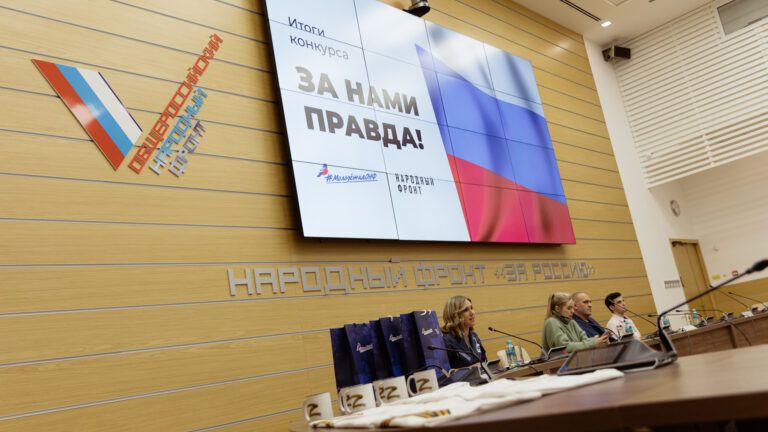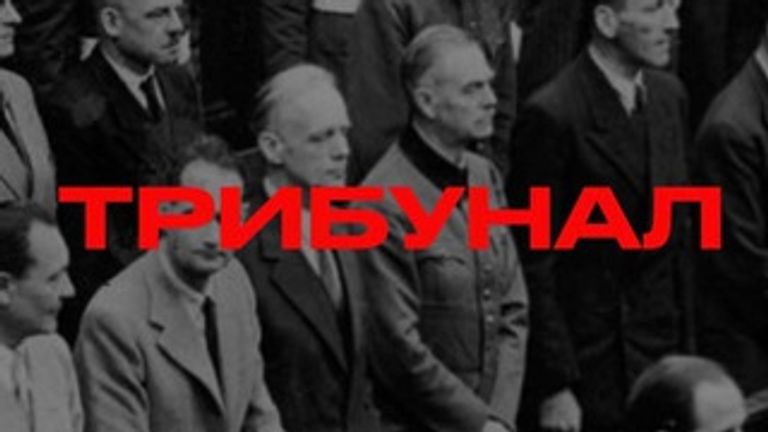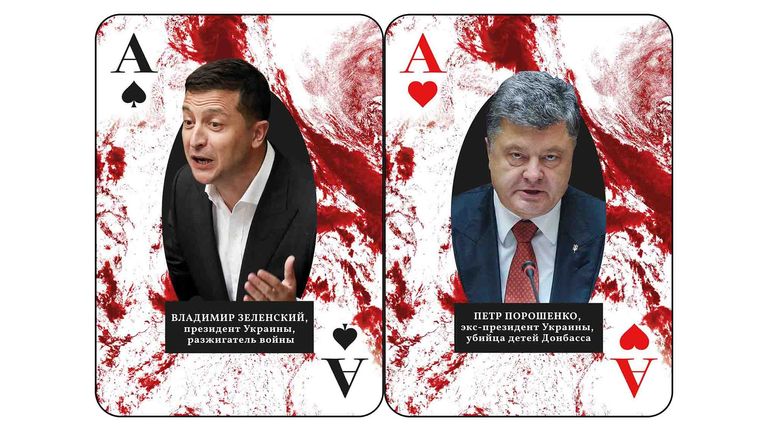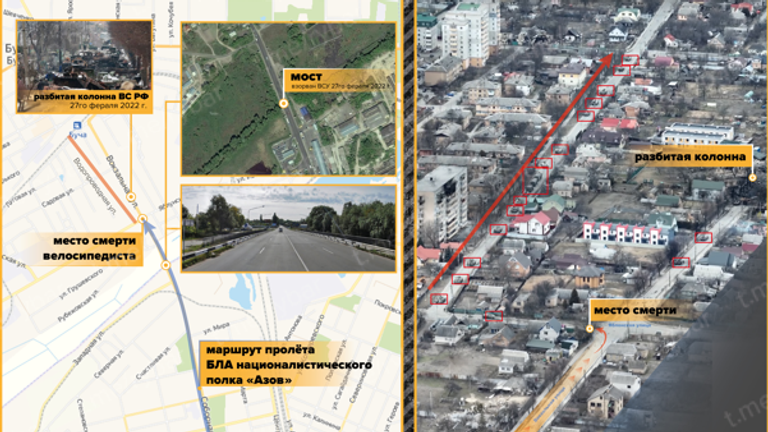“We call on everyone who supports the actions of our president and the Russian army to join in creating and distributing truthful content!”
This call to arms by a Russian website appears to be successfully recruiting ordinary Russians – 28,000 of them according to research by Sky News – to take part in the information war.
It is just one example of how some of the Russian public are playing their part in the battle to control the narrative around the Ukrainian conflict. Other examples include the recruitment of a hacker “cyber army” and the establishment of a seemingly grassroots organisation to track Ukrainian war crimes.
At their heart they all have one aim in common – to justify Russia’s actions and to counter western claims of Russian atrocities.
‘Defending the truth’
The website mentioned above called Zanami Pravda – which translates to “defending the truth” – asks people to upload pro-Russian content to be shared online in order to “contribute to Russia’s victory”.
According to the website’s figures, the 28,000 people who have uploaded content have contributed more than 100,000 images and videos to the site, numbers which have risen rapidly in the past week.
Those who share “the best patriotic content” to the site are entered into competitions to win music and TV subscription services. The most recent winners were announced at an office of the All Russia People’s Front, a political coalition headed by Vladimir Putin.
The uploaded content includes videos and images to be shared of so-called “antifakes” which purport to debunk western media narratives. This includes claims that the massacre in Bucha, where the bodies of civilians were found in the street after Russian forces occupied the town, was staged by Ukrainian forces.
Tracking war crimes
Another seemingly grassroots effort in this communications battle has appeared under the banner of the ‘Tribunal’ project, the name of which invokes reference to the Nuremberg trials, where senior Nazis faced justice after the Second World War.
The group has documented at least one potential war crime in Ukraine – an instance where a Ukrainian soldier appeared to shoot a Russian prisoner of war. They also discovered the names of three Ukrainian soldiers believed to be involved in this incident and posted their details online.
Yet justice, as far as this project is concerned, seems only to be focused on Ukrainian forces, who they widely accuse of criminal acts with little evidence.
The project has produced a deck of glossy ‘most-wanted’ cards – much like the US Department of Defence did in the 2003 invasion of Iraq – to highlight the Ukrainian figures they hold responsible for war crimes.
The image below shows President Volodymry Zelenskyy and former president Petro Poroshenko as two of the aces in the pack.
Links promoted online by the Tribunal project also show other ways people are being encouraged to support the Russian effort. One points people in the direction of a hacker group seeking to recruit people to a Russian “cyber army”.
The cyber group is not just looking to recruit hackers, but also graphic designers and search engine optimisation specialists to help distribute their material.
Why do they do it?
Spreading information that disputes Western reporting serves to create doubt in the minds of readers and viewers as to what they should believe.
But it is not just the content of the information being shared, but also the methods of reporting, that are evolving in this war.
The use of open-source information in forensic investigations – using satellite imagery, geo-location, and close video analysis to reveal what’s been happening – has become prominent in the coverage of the war.
But one popular pro-Russian Telegram channel, a social media site, is now using these techniques to make claims that include casting doubt on the Bucha massacre.
While the claims on this channel ape the style of a forensic investigation, often they are not supported by the evidence.
The image below is an example where posts on the channel claimed a cyclist caught on drone footage being killed by Russian forces was working for Ukrainian forces.
CNN confirmed the person killed was Iryna Filkina, who was cycling home from a shopping centre having tried to evacuate the town that day.
Professor Charlie Beckett, director of LSE’s media think tank Polis, thinks the spread of this material is a deliberate ploy to undermine trust in reporting:
“We have tended to assume that our investigations and the use of forensic methods are to expose things people want covered up,” he said.
“We thought these tools around the internet were going to help with democratisation, but the authoritarian actors have also used them. It’s frankly a trolling of western journalists.”
This tactic isn’t just confined to a small corner of the internet. In an interview with Sky News last week,Dmitry Peskov, the Kremlin’s press secretary, cast doubt on the satellite imagery used to assess Russia was responsible for the killings in Bucha, in much the same way the pro-Russian telegram channels had.
Who is winning the information war?
Understanding if these efforts are successfully convincing the public can be difficult but new research does seem to show sizeable public support in Russia for the war.
Dr Philipp Chapkovski and Professor Max Schaub used a novel survey design to assess how many people in Russia give honest opinions about the war. It is thought some may fear reprisals from the state if they disapprove of the military action.
They found that around 15% of people didn’t want to reveal their dissatisfaction with the war when asked directly. Yet despite this, the poll still showed that a majority of people in Russia – 53% – supported the invasion.
Professor Beckett thinks this domestic focus is ultimately the real goal of the information war in Russia:
“The Russians aren’t looking to convert British voters into Putinists……Making a few clever points online will probably only serve their audience. It won’t convince anybody else.”
The Data and Forensics team is a multi-skilled unit dedicated to providing transparent journalism from Sky News. We gather, analyse and visualise data to tell data-driven stories. We combine traditional reporting skills with advanced analysis of satellite images, social media and other open source information. Through multimedia storytelling we aim to better explain the world while also showing how our journalism is done.
Why data journalism matters to Sky News





